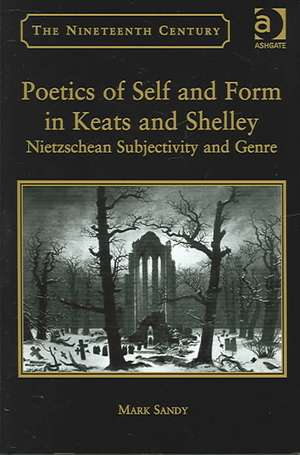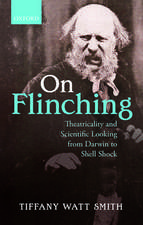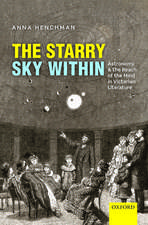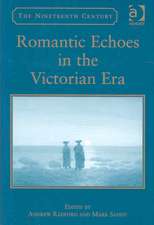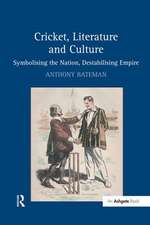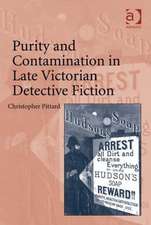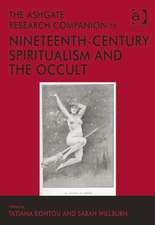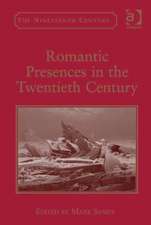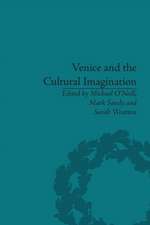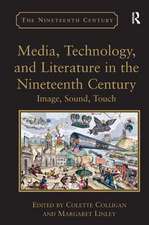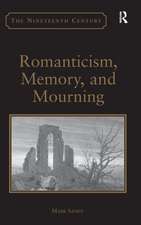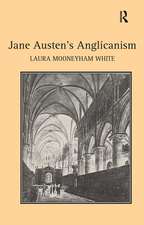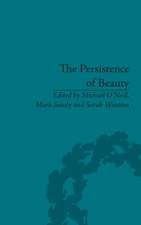Poetics of Self and Form in Keats and Shelley: Nietzschean Subjectivity and Genre: The Nineteenth Century Series
Autor Mark Sandyen Limba Engleză Hardback – 7 mar 2005
| Toate formatele și edițiile | Preț | Express |
|---|---|---|
| Paperback (1) | 259.98 lei 6-8 săpt. | |
| Taylor & Francis – 12 dec 2019 | 259.98 lei 6-8 săpt. | |
| Hardback (1) | 762.97 lei 6-8 săpt. | |
| Taylor & Francis – 7 mar 2005 | 762.97 lei 6-8 săpt. |
Din seria The Nineteenth Century Series
-
 Preț: 310.08 lei
Preț: 310.08 lei -
 Preț: 203.27 lei
Preț: 203.27 lei -
 Preț: 305.90 lei
Preț: 305.90 lei -
 Preț: 230.80 lei
Preț: 230.80 lei - 18%
 Preț: 1002.63 lei
Preț: 1002.63 lei - 18%
 Preț: 1113.16 lei
Preț: 1113.16 lei - 28%
 Preț: 738.01 lei
Preț: 738.01 lei - 31%
 Preț: 764.62 lei
Preț: 764.62 lei - 26%
 Preț: 765.77 lei
Preț: 765.77 lei - 18%
 Preț: 1053.92 lei
Preț: 1053.92 lei - 31%
 Preț: 764.20 lei
Preț: 764.20 lei - 18%
 Preț: 1006.60 lei
Preț: 1006.60 lei - 31%
 Preț: 767.80 lei
Preț: 767.80 lei - 28%
 Preț: 877.59 lei
Preț: 877.59 lei - 18%
 Preț: 999.46 lei
Preț: 999.46 lei - 18%
 Preț: 1109.04 lei
Preț: 1109.04 lei - 31%
 Preț: 763.39 lei
Preț: 763.39 lei - 15%
 Preț: 671.28 lei
Preț: 671.28 lei - 27%
 Preț: 527.59 lei
Preț: 527.59 lei - 18%
 Preț: 1109.18 lei
Preț: 1109.18 lei - 28%
 Preț: 819.90 lei
Preț: 819.90 lei - 28%
 Preț: 523.97 lei
Preț: 523.97 lei - 31%
 Preț: 766.31 lei
Preț: 766.31 lei - 31%
 Preț: 766.31 lei
Preț: 766.31 lei - 28%
 Preț: 496.53 lei
Preț: 496.53 lei - 18%
 Preț: 1007.39 lei
Preț: 1007.39 lei - 31%
 Preț: 764.62 lei
Preț: 764.62 lei - 30%
 Preț: 772.42 lei
Preț: 772.42 lei - 27%
 Preț: 496.07 lei
Preț: 496.07 lei - 30%
 Preț: 769.90 lei
Preț: 769.90 lei - 28%
 Preț: 823.17 lei
Preț: 823.17 lei - 30%
 Preț: 769.51 lei
Preț: 769.51 lei - 31%
 Preț: 766.31 lei
Preț: 766.31 lei - 28%
 Preț: 825.63 lei
Preț: 825.63 lei - 28%
 Preț: 819.90 lei
Preț: 819.90 lei - 31%
 Preț: 767.88 lei
Preț: 767.88 lei - 26%
 Preț: 766.24 lei
Preț: 766.24 lei - 31%
 Preț: 764.62 lei
Preț: 764.62 lei - 28%
 Preț: 737.19 lei
Preț: 737.19 lei - 28%
 Preț: 739.33 lei
Preț: 739.33 lei - 28%
 Preț: 820.32 lei
Preț: 820.32 lei - 18%
 Preț: 1054.71 lei
Preț: 1054.71 lei - 31%
 Preț: 764.62 lei
Preț: 764.62 lei - 31%
 Preț: 764.62 lei
Preț: 764.62 lei - 15%
 Preț: 675.24 lei
Preț: 675.24 lei - 28%
 Preț: 735.57 lei
Preț: 735.57 lei - 31%
 Preț: 765.01 lei
Preț: 765.01 lei - 15%
 Preț: 698.17 lei
Preț: 698.17 lei
Preț: 762.97 lei
Preț vechi: 1102.07 lei
-31% Nou
Puncte Express: 1144
Preț estimativ în valută:
146.01€ • 158.55$ • 122.65£
146.01€ • 158.55$ • 122.65£
Carte tipărită la comandă
Livrare economică 22 aprilie-06 mai
Preluare comenzi: 021 569.72.76
Specificații
ISBN-13: 9780754635796
ISBN-10: 0754635791
Pagini: 160
Dimensiuni: 156 x 234 mm
Greutate: 0.39 kg
Ediția:1
Editura: Taylor & Francis
Colecția Routledge
Seria The Nineteenth Century Series
Locul publicării:Oxford, United Kingdom
ISBN-10: 0754635791
Pagini: 160
Dimensiuni: 156 x 234 mm
Greutate: 0.39 kg
Ediția:1
Editura: Taylor & Francis
Colecția Routledge
Seria The Nineteenth Century Series
Locul publicării:Oxford, United Kingdom
Cuprins
Contents: Preface; Reading Nietzsche's anti-romanticism; Fictions of the self; Tragic romance; Lyrical transgressions; Posthumous meditations; Poetic ruins; Bibliography; Index.
Notă biografică
Mark Sandy is Lecturer in English at The Department of English Studies, University of Durham, UK.
Recenzii
'This book is a valuable comparative study of Keats and Shelley, and offers useful insights into the theoretical and critical context of current Romantic studies.' Romantic Textualities 'Mark Sandy's compelling book is a comparative analysis of the works of Shelley and Keats 'from a Nietzschean perspective'... the great strengths of this book are: its refreshingly new readings of canonical texts using a critical approach that happily takes into its ken lesser-known works; its sensitivity to form, genre and to the beauties of the poetry under examination; its admirable versatility in considering these alongside perennially pertinent questions about subjectivity, history and language.' British Association for Romantic Studies ’... suggestive and intelligent book... It is an admirable and adventurous study of subjectivity through the sensitive close reading of genre.’ The Year's Work in English Studies ’...Sandy's book more than fulfills [Ashgate's 'The Nineteenth Century'] series' mandate to generate new ideas and theories while preserving the values of 'traditional scholarship'. Sandy deftly constructs a thought-provoking analysis of the 'treatment of self' in the works of Keats and Shelley...supported by immensely useful discursive and bibliographic footnotes.’ Keats-Shelley Journal
Descriere
In focusing on the poetic treatment of self and literary form in Keats and Shelley, Mark Sandy shows how using Nietzsche's philosophy to illuminate Keats's correspondence and Shelley's A Defence of Poetry provides a conceptual basis for a comparative reading of the poets. Using key ideas from Nietzsche, Sandy explores Keats's Endymion and Shelley's Alastor as redefinitions of the romance genre. Further, he suggests that in their redescription of romance, Keats and Shelley discovered a radical mode of subjectivity that is present in Keats's major odes and Shelley's lyrical poetry as a conflict among poetic identity, art, and existence. In Sandy's reading, Shelley's Adonais and Keats's The Eve of St Mark emerge as diverse meditations on crises of posthumous reputation and future audience, whereas Keats's Hyperion fragments and Shelley's The Triumph of Life resolve these anxieties over authorial posterity by entrusting the reader with a new form of poetical self.
